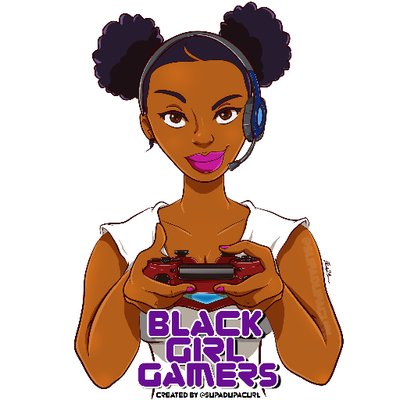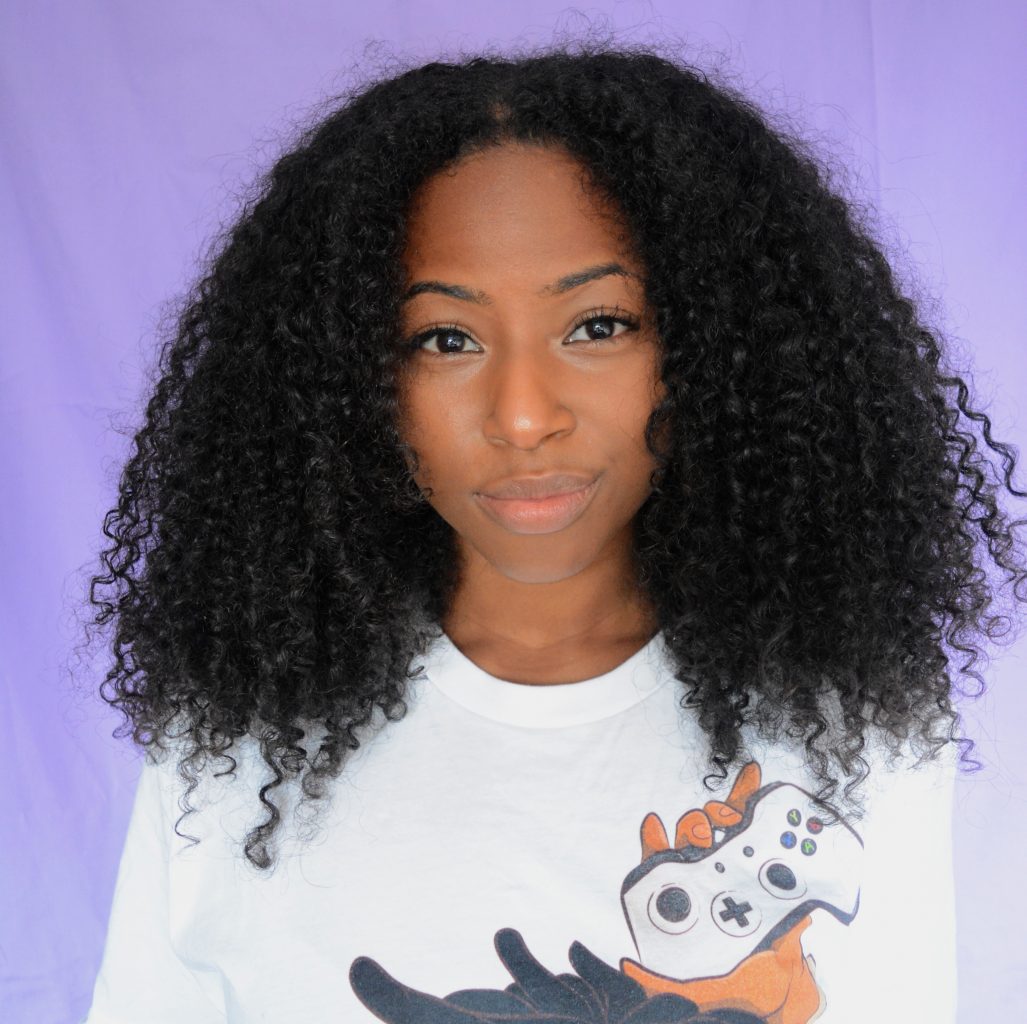Despite 43% of UK gamers being female, just 21% of game developers are women – and only 4% are black or Asian. Blogosphere investigates the gender and racial issues within the gaming industry and speaks to Jay-Ann Lopez, founder of Black Girl Gamers.

Picture a stereotypical gamer. Chances are your imagination jumped to a white skinny teenage boy sitting alone in a dark room, an inch from his computer screen. But this is far from the truth.
According to GameTrack Digest, out of the 21 million people that play video games in the UK, almost half are women and over a quarter are aged 44+. However, the number of women consuming video games is not reflected in the number of women making them. The latest study from the International Game Development Association shows that just 21% of game developers in the UK are female and only 4% identify as black or Asian.
Unsurprisingly, this lack of diversity has an impact on the content of games produced, with female lead characters being few and far between and black characters often heavily stereotyped as criminals or gangsters.
Gaming is a huge part of YouTube culture, with game reviews and Let’s Play videos (where the YouTuber films themselves playing a video game) garnering millions of views. The most subscribed to YouTuber, Pewdiepie, has over 63 million subscribers and is well known for his Let’s Play content. However this is by no means a strictly male genre, with YouTubers including Zailetsplay (1,200,000+ subscribers) and LD Shadow Lady (4,000,000+ subscribers) proving the appeal of female online gamers.
Being a woman in gaming is not without its challenges. The gaming industry has a somewhat unsavoury reputation when it comes to gender equality, with 55% of developers believing that sexism in games is a factor affecting the negative perception of the industry.
A 2011 YouTube series by Anita Sarkeesian, on her channel Feminist Frequency, called ‘Tropes vs Women in Video Games’ highlights the sexist stereotypes that pervade many popular video games, including the damsel in distress archetype and the notions of women as reward and women as background decoration.
These outdated gendered clichés are widely used in games and have been central to the popularisation and development of gaming itself, Anita explains. Unfortunately even seven years after Sarkeesian’s video series, the trials that women, and particularly women of colour, face in the gaming industry do not stop there. If the lack of representation in actual games wasn’t troubling enough, racist and sexist harassment is rife in the community, with many women subject to relentless trolling whilst streaming and playing on sites like Twitch and YouTube.

27 year old Jay-Ann Lopez has experienced this first hand.
“The gaming scene can be full of misogynoir,” she says. “It doesn’t matter whether you’re streaming, playing with random people online or watching popular gaming channels; you find yourself constantly hearing racist or sexist comments and jokes like the Ugandan Knuckles meme.”
An incident further exemplifying the grief women gamers face online is the infamous Gamergate controversy of 2014. Gamergate, an extreme online abuse and harassment campaign directed at female gamers, claimed to expose unethical collusions between journalists and feminists. Sites like Twitter and Reddit were used to target women in the gaming industry who were seen to be encouraging liberal, feminist values and working with journalists to promote these views.
At the centre of the storm of abuse was American game developer Zoe Quinn. In 2014, her ex-boyfriend posted a 9,000 word essay online in which he falsely claimed Quinn was having a relationship with a journalist in exchange for positive coverage. Quinn received rape and death threats and was harassed on a daily basis. Her personal details were also leaked online, forcing her to flee her home. Quinn has since founded an organisation to assist victims of online harassment and published a novel, Crash Override: How Gamergate (nearly) destroyed my life and how we can win the fight against online hate. Sarkeesian was also targeted in Gamergate, receiving similar threats and abuse after her ‘Tropes’ series.
Also, earlier this year, in a piece for the Guardian entitled ‘The video games industry isn’t yet ready for its #MeToo moment’ journalist Keza Macdonald explained the reluctance of women in the gaming industry to speak out against workplace sexual harassment. “Even when sources are anonymised, there are so few women in the games industry that it would hardly be impossible for trolls to discover their identities and wreak retaliatory havoc,” she wrote.
This poses the question: can the gaming world be rebooted or are its errors too deeply encoded to troubleshoot?
Game developer Chella Ramanan told the BBC, “Traditionally games have primarily been advertised at teenage boys, particularly white middle-class teenage boys. You then start to see this cycle of white, middle-class men making games that reflect themselves, which means characters in games don’t look like that black or Asian kid in inner-city London or Leeds.
“I am seeing things change, though. Uncharted’s Nadine Ross was amazing for me because she has got curly afro hair. There are more black leads coming through but we just want to encourage even more diversity and more voices of young people who may otherwise think the games industry is not for them.”
One woman who is proud to say that the gaming industry is most-definitely
for them is London-based Jay-Ann Lopez, founder of Black Girl Gamers (BGG), a community for women of colour who play video games. Founded in 2015, BBG provides a safe space online for its 2,400+ members to game in an environment free from the sexist and racist trolls.
Their Twitch channel, which they stream from most evenings, says in its description: ‘Why is Black Girl Gamers necessary? Because we exist and we’re not a recent invention. Because we exist and deserve to be represented. Because racist and sexist trolls. Because we game too’.
“My gaming experience is 10,000 times better since founding BGG,” Lopez reveals. “I’ve created a growing community of BGGs and non-BGGs that are all-round dope people to game and share with.”
She is also hopeful about the future of the industry as a whole.
“Gaming content needs to diversify and it’s happening slowly, but surely,” she says. “I’m hoping the days when black female characters were only represented as tough and sassy for token diversity and comic relief are gone. A huge variety of narratives can be told through gaming, like stories from different cultures. I am seeing more and more non-Western focussed narratives popping up in indie games, which is great.”
Lopez also believes that tokenism in game development won’t be an issue for much longer.
“People are becoming more aware of what companies will do to attract audiences solely for financial purposes. Authentic diversity requires a lot of work, including hiring individuals with the backgrounds that you are trying to reflect and making their input integral to the strategy of the development process. It’s obvious when a company hasn’t done their research. The so-called ‘representation’ falls flat, lacks nuance and can even be based on outdated racist ideals.”
Having created a safe space for black women to come together and enjoy video games, Lopez has also attracted a wider audience.
“We have plenty of non-BGG supporters that understand the reason why BGG exists and wholeheartedly embrace the cause with love. Some white men are sick of seeing a 40 year old rugged white man as the only representation of a gaming antagonist. Whilst the BGG safe space is exclusive, we have a public Discord chat where BGGs and the BGGfam (our supporters) can all play and connect.”
For Jay-Ann Lopez, the online world where racist and sexist trolls reside
is also the very space where she has found an oasis of community in BGG. That is the paradox of the internet: its simultaneous encouragement of anonymity and hatred, and its ability to foster community and solidarity.
It’s no question that the gaming industry, just like wider society, needs to level up and permanently delete misogynoir.
